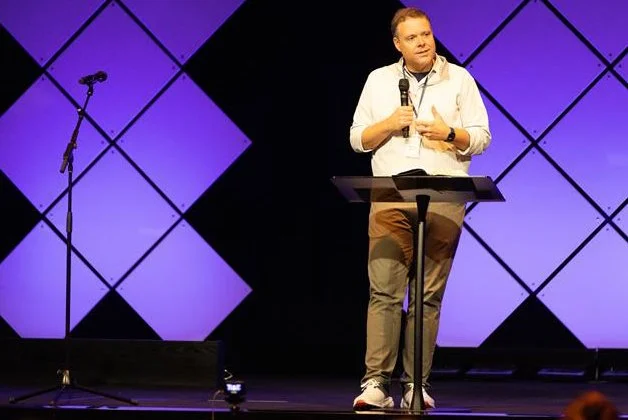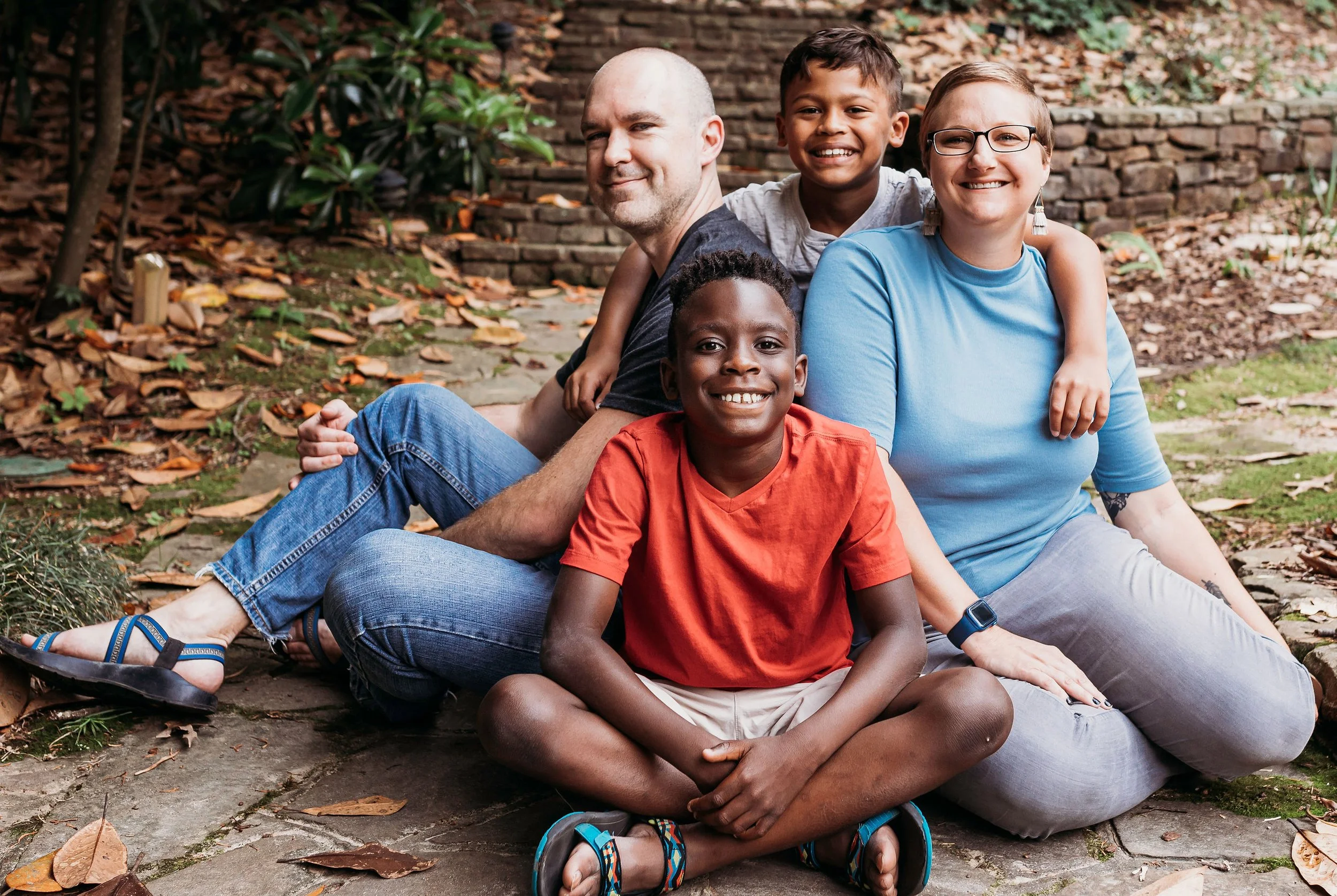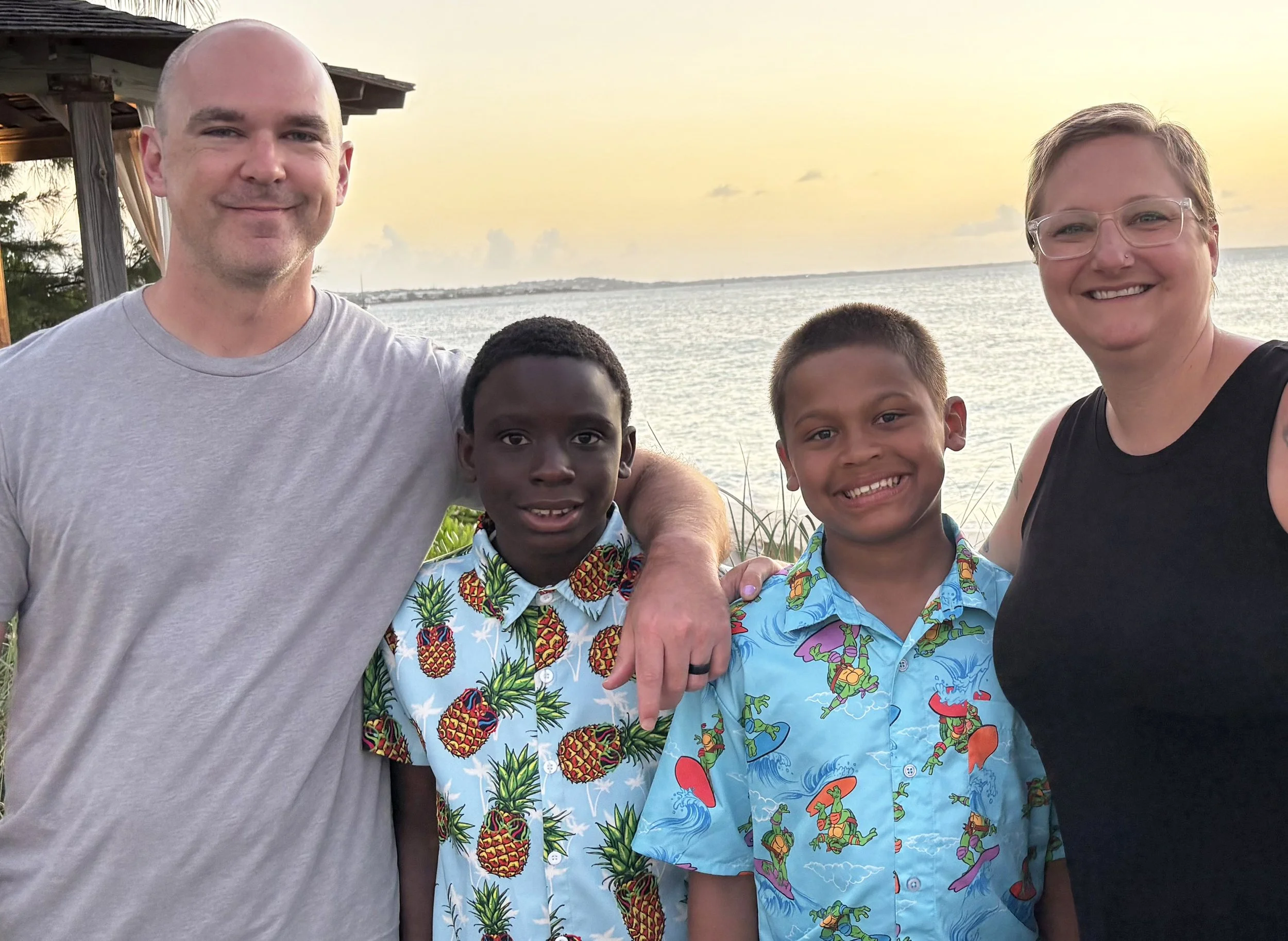🍼 ‘In God’s Timing’: 2 Adoptions, 31 Years Apart 🔌
Weekend Plug-in 🔌
Editor’s note: Every Friday, “Weekend Plug-in” meets readers at the intersection of faith and news. Click to join nearly 10,000 subscribers who get this column delivered straight to their inbox. Got feedback or ideas? Email Bobby Ross Jr.
• • •
In 1982, a 3-month-old girl named Rebecca became the 13th child adopted through Lifeline Children’s Services.
The Birmingham, Alabama, nonprofit — launched the previous year — grew out of an evangelical crisis pregnancy ministry called Sav-a-Life.
“Our mission was always to say: How do we serve women between the choice for life, and then on the other side of the postpartum ward, how do we help make sure that women and children are thriving?” said Herbie Newell, Lifeline’s president and executive director since 2003.
“And so this ministry, for the last 44 years,” Newell added, “has always really been about: Let’s make sure that we don’t just see life come to fruition and women choose life, but let’s really seek abundant pro-life, whole-life ministry.”
November is National Adoption Month. (Shutterstock photo)
Rebecca Peyton, a Christian who attends the nondenominational Church Unlimited in Birmingham, is now 43.
“Growing up, my parents were always very open about my adoption, so I knew,” said Peyton, a special education teacher. “I mean, from the time I can remember, it was just always a normal part of our conversation. … And I knew some of the background from my birth family.”
Her birth mother was 26 and caught up in a cycle of addiction when she became pregnant. She did not know the identity of the father.
Peyton’s adoptive parents have been married for over 50 years.
“Just having that strong foundation of what a family can look like and having that support growing up, I’ve just always been thankful for my adoptive parents,” Peyton said.
At the same time, she stressed that being an adopted child “does come with some trauma of wanting to know who my biological parents were. I’ve since found some of my biological family and had a relationship with my biological mom.”
As for her biological father, she said, “I’ve actually done some of the Ancestry and 23andMe trying to put pieces together, but I have not matched with anyone close enough to determine who my birth father would be.”
A couple plays with their adopted son. (Photo provided by Lifeline Children’s Services)
• • •
IN 2013, a 1-month-old boy named Abe became the 1,000th child adopted domestically through Lifeline.
He’ll celebrate his 12th birthday this weekend.
“We work with children and families in all 50 states,” Newell said of Lifeline, which has grown into one of the nation’s largest evangelical adoption agencies. “And then we have an outreach in 49 countries with orphans and vulnerable children in those countries.”
Because of intellectual disabilities, Abe’s birth mother “was not able to take care of herself and a young child,” said the woman who adopted him.
Abe’s adoptive mother is a person of strong Christian faith.
“There were many times where we could see God kind of ordering our steps through our infertility journey and as far as the adoption,” she said. “Prior to Abe, we had several what they would call ‘failed adoptions,’ where we thought we were placed with a child or a potential birth mother, and then those adoptions didn’t happen.
“But we know everything happens for a reason and in God’s timing,” she added. “So whatever those steps were, he ordered those. And, I mean, Abe is obviously our son now, and we could not imagine life without him.”
Herbie Newell has served as president and executive director of Lifeline Children’s Services since 2003. (Photo provided by Lifeline)
• • •
ABE’S MOTHER is an adopted child herself.
In fact, she is Peyton — the little girl who came to her forever family through Lifeline in 1982.
Thirty-one years later, she and her husband, Rick, turned to Lifeline to connect them with Abe.
“Rebecca grew up in a loving home where she was taught that adoption was a beautiful thing,” Newell said.
“You know, one of the things that we make sure our adoptive parents know is that these birth mothers are heroes in a culture of death,” he added. “When they could have chosen to have an abortion, they chose to go against culture … to place the child in the arms of another.”
Peyton is not alone in being adopted and then choosing to adopt, Newell said.
It happens a lot, he said.
“I always wanted to adopt,” Peyton said, “but we always thought we would have our own [biological] kids first. Then we went through infertility and learned that our thoughts are not always what God has in store for us.”
The couple later adopted a second son, Zy, through the foster care system when he was almost 3. Zy will turn 12 in February.
Rick and Rebecca Peyton with their adopted sons, Abe, in back; and Zy, in front. (Photo provided by Lifeline)
Now — as part of National Adoption Month in November — Lifeline is celebrating 1,500 completed domestic adoptions through its ministry.
“It’s definitely great to see that children are being cared for by families,” Peyton said of that milestone. “Families were made. Yet also part of it is that families were broken. So there’s really that multifaceted side to adoption.
“For that birth family, there’s probably always going to be that longing of wanting to know,” she said. “Some of the things my birth mom said was wanting to know: Was I OK? How was I doing in school? What did I look like? So there’s that trauma and sadness on the birth family side.”
On the adopted child side, Peyton recalled that she often wondered, “What does my sister look like? What does my birth mom look like? Who did I get my singing abilities from? Which, now I found out, it’s my birth mom.
“So there’s different sides to adoption, but it can definitely be a beautiful reflection of how we’re all adopted into God’s family,” she added. “Everyone has a place — everyone has a belonging — so it’s just kind of wrapping that all together.”
Rick and Rebecca Peyton with their adopted sons, Zy and Abe. (Photo provided by Lifeline)
• • •
THE ADOPTION PROCESS is far from perfect.
Negative critiques of adoption have emerged on social media sites such as Instagram.
Systemic flaws in domestic and international adoption have raised concerns.
“From corruption to coercion, transracial family dynamics to legal battles, adopting a child was more fraught than the simple picture I’d been sold in church,” Kristin T. Lee wrote for Christianity Today last year.
At Lifeline, Newell said the goal is to find families for children who need homes — not children for families who want children.
“That may sound like semantics, but it really is a big thing,” he said. “It drives what we do. Unfortunately, there are some that are looking for children for families. So they will do unethical things. They will skirt the edge of the law in order to find the placement. And I believe the abortion lobby has really tried to put a spotlight on that fringe movement.”
A couple who adopted their child through Lifeline Children’s Services. (Photo provided by Lifeline)
• • •
FOR HER PART, Peyton said she’s cognizant of some of the concerns raised.
Abe is biracial, and Zy is Black, so the family is transracial.
“So we really had to work through just understanding their heritage and just their culture and making sure that we were bringing that into their family,” Peyton said.
The family moved into a diverse school district with children who look like Abe and Zy.
“We have multiple different races represented at our church,” Peyton said, “and then we try to incorporate things like taking the boys to a hair salon that has Black and biracial hair stylists that can help them with that process.”
Peyton and her husband talk openly with their sons about their adoptions.
“We even talk about positive aspects of their birth families that we do know about,” Peyton said. “But unfortunately, we do not have a relationship with either of those birth families at this time.”
Inside The Godbeat
Daniel Silliman, Christianity Today’s senior news editor, revealed on social media that he’s leaving the magazine after six years.
“I have significant disagreements with the new leadership, both practical and philosophical,” Silliman wrote on X. “It’s time for me to go.”
As Plug-in noted last month, Marvin Olasky, a former Religion Unplugged books columnist, is CT’s new editor-in-chief. Nicole Massie Martin is CT’s new president and CEO.
“Martin steps into the top spot at a moment when the 69-year-old ministry is both expanding its digital footprint and facing intensified scrutiny inside and outside evangelical circles,” Mark A. Kellner reports for JulieRoys.com.
The Final Plug
How do New York Times religion writers Elizabeth Dias and Ruth Graham cover Christianity in a polarized America?
That’s the subject of a compelling Q&A with Dias and Graham by Patrick Healy, the Times’ assistant managing editor for standards and trust. Check it out.
Happy Friday, everyone! Enjoy the weekend.
Bobby Ross Jr. writes the Weekend Plug-in column for Religion Unplugged and serves as editor-in-chief of The Christian Chronicle. A former religion writer for The Associated Press and The Oklahoman, Ross has reported from all 50 states and 20 nations. He has covered religion since 1999.







